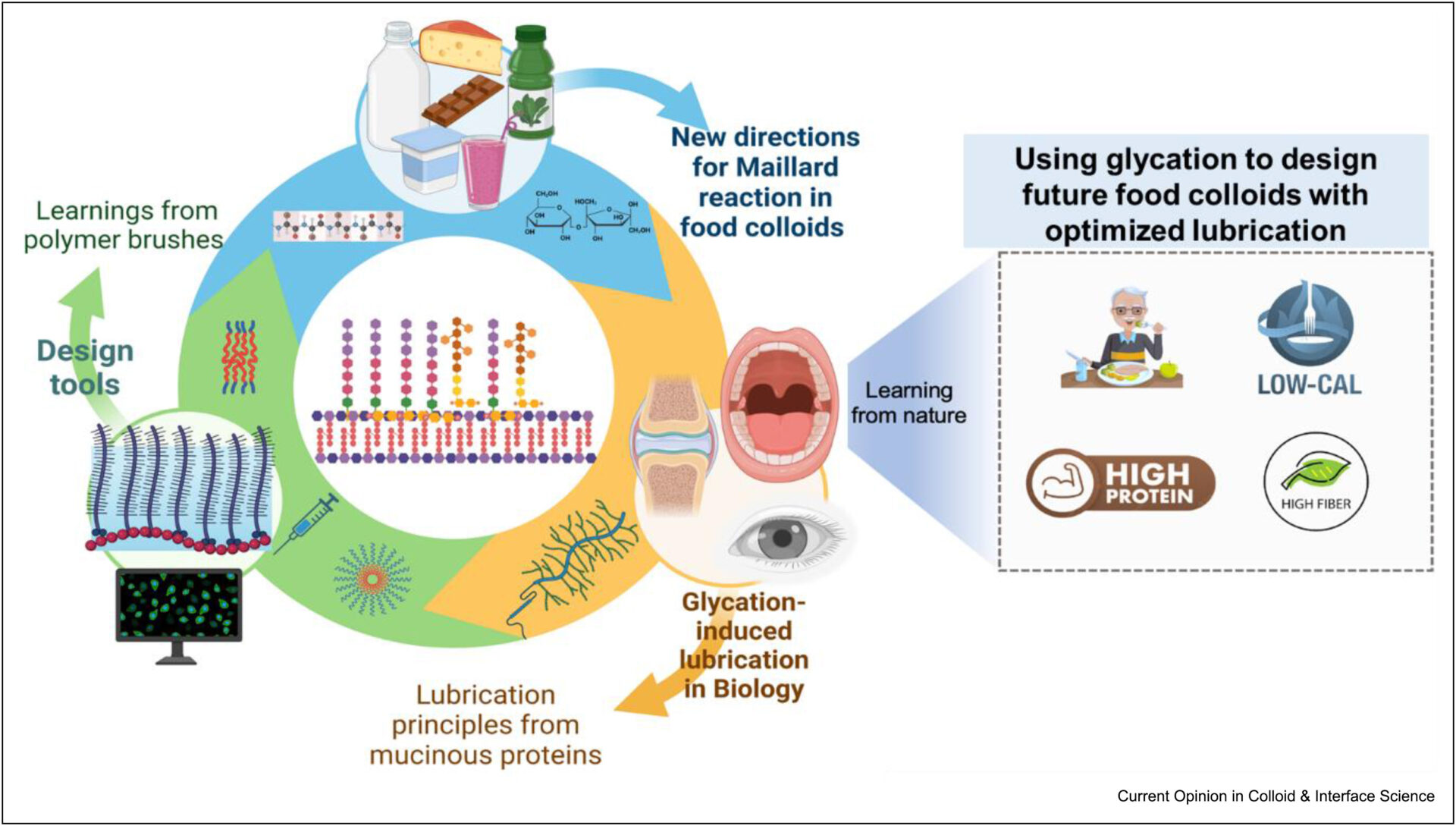New review paper on glycation to address sensorial issues in alternative proteins

Maillard reaction i.e. science of glycation is known in food processing over 100 years and often seen in our kitchen science pretty-much regularly. How about repurposing the age-old tool of glycation to improve lubricity of alternative proteins? This new review article published in Current Opinion in Colloid and Interface Science by Dr. Khalid Gul (Visiting Researcher at Sarkar Lab) and Prof. Anwesha Sarkar (PI, Sarkar Lab) on "Glycation influencing lubrication: Tribology principles derived from nature to inspire future food colloid design" focuses on how glycation in nature-engineered saliva, tear and synovial fluids containing mucinous glycoproteins such as mucins and lubricins contribute to the so-called hydration lubrication pinpointing some foundational works (both experimental and modelling). Specific design rules of brush polymers used in polymer science to achieve ultra-low friction that can be used in context of glycation in food colloid science to modulate food lubricity are discussed. Also, very few food tribological studies on glycation of dietary proteins are examined. The molecular rules described in this review when exploited within the known food science boundaries can help to develop sustainable and healthy foods such as alternative protein-rich foods with lesser surface hydrophobicity, optimized lubricity and mouthfeel and also foods for vulnerable population with special oral processing needs. Check out the full text here: https://doi.org/10.1016/j.cocis.2023.101782
